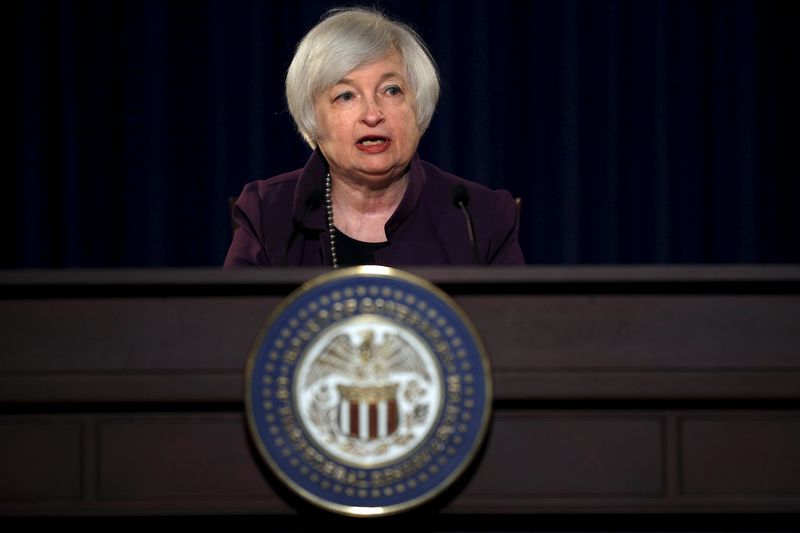Street Calls of the Week
Investing.com - As the US faces a potential financial crisis, Treasury Secretary Janet Yellen has issued a stark warning about the consequences of not raising the nation's debt ceiling. If an agreement isn't reached to increase federal borrowing limits, the government could run out of money as early as June.
Failure to address this issue may result in an inability for the federal government to meet its obligations, such as wage and welfare payments. Yellen emphasized that it is Congress's responsibility to act and avoid creating an economic catastrophe by their own hand.
In a recent interview with ABC News, she expressed her concerns regarding negotiations over increasing the debt ceiling. She urged that these discussions should not be held under pressure or threats against American people.
With time running short for reaching an accord, President Biden will meet with Republican leaders on Tuesday in hopes of convincing them to raise the current $31.4 trillion limit. Traditionally, congressional approval for higher debt ceilings has been linked with conditions related to budgetary and spending measures.
The House of Representatives took action last month by passing a bill aimed at raising this threshold; however, it also contained extensive spending cuts projected over ten years. In contrast, President Biden seeks unconditional support from Congress when addressing debt ceiling increases while reserving budget cut talks until after resolving this pressing matter.
Yellen highlighted that failure in achieving bipartisan consensus could lead us towards a "constitutional crisis." As such, there have been internal debates within Biden administration about whether constitutional provisions would allow continued issuance of new debts without congressional backing – although they hope not having resorting such options during ongoing deliberations.
Since the 1960s, the US had faced multiple episodes involving adjustments or extensions made to its national debt limit - totaling up around 78 times. Despite negotiations often reaching critical junctures, a compromise has always been reached to prevent defaulting on government payments and debt commitments. Such an event would have devastating consequences for global financial markets and economies worldwide.
Nevertheless, Yellen also cautioned that procrastinating on resolving this issue could inflict notable damages. In her letter to Congress last week, she pointed out the adverse effects of past delays in addressing debt limits - from diminished business confidence to increased short-term borrowing costs for taxpayers and negative impacts on America's credit rating.
